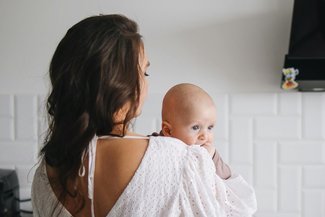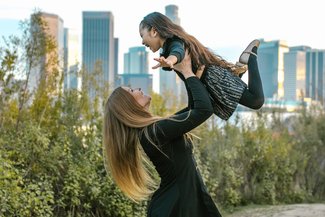
We Need Support
Our project in partnership with Greater Manchester Combined Authority, exploring how women facing multiple unmet needs experience systems of child removal.

6 Sep 2024
We recently published ‘We Need Support’, a new briefing commissioned by Greater Manchester Combined Authority, which centres the voices of women in the region with lived experience of child removal.
Here, we share Part I of an interview with Lilly Lewis-James, Agenda Alliance trustee and Co-Chair of the project, and Candice*, sharing their perspectives as experts by experience involved in the briefing.
AA: Do you think the general public understand what it’s like for women experiencing child removal?
Candice: No. You’re made out to be a bad parent to the general public, they don’t realise that as you’re going through child removal, you’re in it on your own. All other agencies get involved, you’re backed against the wall. I went down the road to drug addiction because I was trying to deal with everything. You don’t get no support at all. You’re just stamped as a bad mum and the road you go down after that makes it worse, because not only are you a bad mum, you’re homeless, you’re an addict, you know? They’ve got no understanding of it at all.
Lilly: Yeah, I think the general public think that it’s a really long, drawn out of process and you’ve been given chance after chance after chance. And social services have worked with you and there’s no other option. For me, in my case, my children were taken on an emergency protection order. I was removed from the house of my abuser with my children. I was woken up thinking I had a place at a refuge, but I was actually told, ‘We’ve got an emergency protection order.’ They put my arm up my back, kicked me out of the police station at midnight and kept my children. I don’t think that the general public knows that happens. I certainly didn’t know - I didn’t even think it was legal.
AA: It sounds like there’s two sides. On one, a lack of understanding and information, for the general public, but even amongst women like yourselves who have a shared experience but had it happen in a very different way. And on the other, the impact of feeling shamed and stigmatised by the stereotypes. Where do you think those stereotypes come from?
L: You hear it in the media. It’s also what’s said to your children – my children were told that I chose alcohol and men above them.
C: My children were told I chose drugs. But I didn’t get into drugs until they removed my children. They told my kids I was a heroin addict. I’ve never touched heroin in my life. And it’s on file.
Lilly: They don’t look at all of the factors... absolutely, we drink or we use drugs – but as a coping mechanism.
AA: Who was telling your children this?
Both: The social workers.
L: On my file, it said that I’d been arrested for child neglect, or I’d been charged with child neglect. And I’ve never been arrested for that. They said ‘Oh, sorry, it’s a mistake, we’ll remove it’ but at that point, how many people had already read it?
AA: In a more hopeful sense, what do you hope people might learn from reading a briefing like this?
L: That it’s a barbaric system, where women are demonised.
C: Definitely.
L: And the level of trauma that is embedded, not just to the mother, but the children. They are what I would call the silent victims. They’re not given a voice, and they’re not given a choice.
C: They’ve got adults telling them, this is how it is, and mum’s not there, so they believe the adults. It messes with their heads, it really does. I think us putting this out there and people reading more about our experiences, they will start to understand more instead of judging people.
L: The feedback that I’m getting is that people are shocked. People say, this is so powerful, we never knew this happened. So, if you hadn’t been affected by it directly, you wouldn’t know the process.
AA: Do you feel like you’ve ever seen any other public representation of women who’ve experienced child removal?
Both: Never.
L: It’s so taboo, isn’t it. As a mother you don’t really want to talk about it and acknowledge it, and social services certainly don’t want to say what they do, so nobody wants to talk about it.
AA: How has it felt since meeting other women who’ve been through it, how has that changed things?
L: It’s been really empowering but also really sad, because you thought it was just you who was going through that.
C: If we knew there was a network out there and something we could go to, to chat like we have been doing, I think that would be totally different. When I’ve told my story, they’ve gone through the same but we’re all different.
L: We’ve all been treated the same by the system regardless of what our stories are.
C: It’s like a new family. It’s so empowering. You believe in each other, you’re not looked at as a liar, because we’re all in it together.
AA: How did it feel to be involved in producing ‘We Need Support’?
L: I felt like I’d been given a voice. And through the voices of the women that came to the focus group, we were able to tell their stories for them, but in a way that we’re advocating for change.
C: Absolutely. For me, it has given me a voice but also the knowledge that you’ve got those people around you. It does need putting out there and we’re the people who've been through it that can put it out there and give it life.

Our project in partnership with Greater Manchester Combined Authority, exploring how women facing multiple unmet needs experience systems of child removal.

The second part of our interview with Agenda Alliance trustee, Lilly Lewis-James, and Candice*, focusing on their treatment by professionals whilst experiencing child removal, and what needs to change.